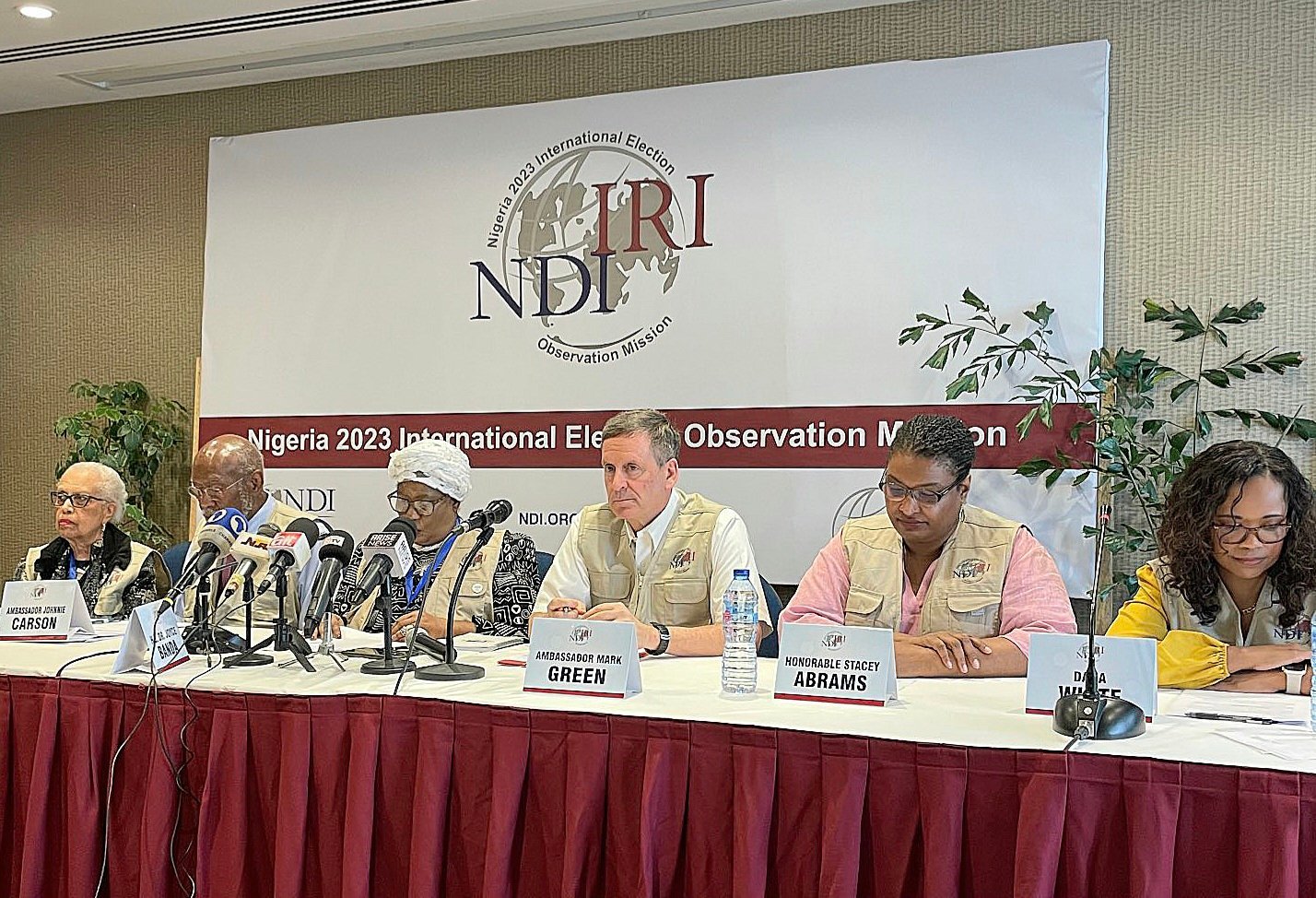The Presidential and National Assembly election held last Saturday fell well short of Nigerian citizens’ legitimate and reasonable expectations, despite the reforms to the Electoral Act 2022.
This is contained in the preliminary report of the international observation mission of the International Republican Institute (IRI) and the National Democratic Institute (NDI) to the election released on Monday, February 27.
Led by the former President of Malawi, Dr. Joyce Banda, the 40-member IRI/NDI mission said it visited Nigeria from February 20 to 27, 2023, and deployed observer teams to 20 states covering all six geopolitical zones and the Federal Capital Territory (FCT).
“Failures of logistics, challenges with voter registration and voter card distribution, inadequate communication by INEC, lack of transparency in the publication of election data, and unchecked political violence before and during the elections overshadowed incremental administrative gains achieved in the pre-election period, and impeded a substantial number of citizens from participating in voting.
“Ongoing currency and fuel shortages also imposed excessive burdens on voters and election officials while marginalized groups, especially women, continued to face barriers to seeking and obtaining political office.
“On election day, logistical failings caused late openings across the country, creating tensions, and the secrecy of the ballot was compromised in some polling units given overcrowding.
“Although the application of new electoral technology aimed to increase integrity and efficiency on election day, challenges in the electronic transfer of results and their upload to a public portal in a timely manner continues to undermine citizen confidence at a crucial moment of the process.
“These logistical challenges, together with the scale of electoral insecurity, were foreseeable and avoidable. Failure to address these issues prior to election day was a missed opportunity.
“Moreover, voters’ trust in the process has been considerably shaken by INEC’s lack of transparency about the cause and extent of election day challenges.
“The combined effect of these problems disenfranchised Nigerian voters in many parts of the country, although the scope and scale is currently unknown,” the mission said.
Despite the real and troubling issues, the mission said, “Nigerians once again demonstrated their commitment to the democratic process. Voters displayed extraordinary resilience and resolve to have their voices heard through the ballot, often waiting for several hours due to logistical shortcomings.”
Read Also: Election results: Obasanjo warns Buhari of dire consequences of manipulation
The mission said youth engagement was noteworthy, “with significant increases in youth registrants on the voter roll, and National Youth Service Corps members once again serving as poll workers across the country”.
It said that the election management body, INEC, administered a nationwide election according to the electoral calendar and in the majority of polling units despite widespread insecurity and severe currency and fuel shortages.
“As the nation awaits the results of the electoral process, and with only two weeks until the March gubernatorial elections, we urge all political actors and their supporters to remain calm and exercise restraint.
“INEC, the government, political actors, and civil society should continue to work together and redouble efforts to deliver on citizen expectations for transparent and inclusive elections in order to ensure that electoral outcomes are a credible expression of the will of voters.
“The mission calls on the international community to continue to stand with the people of Nigeria in their efforts to deepen and strengthen their democratic institutions and practices,” the report stated.

